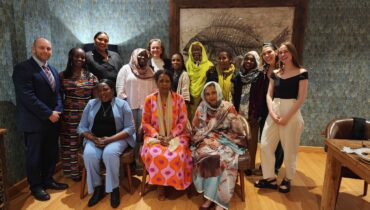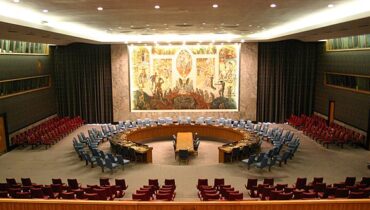For the first time in the history of the Bosnian War Crimes Court, judges have included compensation to a wartime rape victim as part of the Court’s ruling. On June 24, 2015, Bosiljko Marković and Ostoja Marković were each ordered to pay roughly $15,000 to the woman they raped during the war. The Court also sentenced each man to ten years in prison. The following Monday, June 29, the Court sentenced a former soldier to eight years in prison for raping a civilian during the war, and also ordered the defendant pay roughly $16,500 to the survivor.
Such reparations orders for survivors of wartime rape are a huge step forward in the transitional justice process following the 1992-95 Bosnian war. It is estimated that 35,000 women were raped during the conflict. Until now, Bosnian courts have encouraged victims to file claims for compensation in civil proceedings—which can be prohibitively expensive and also requires survivors to reveal their identities. Now that it looks like the War Crimes Court is willing to include reparations orders as part of its rulings, it is expected that many more women will come forward.
Given the anticipated spike in reparations decisions, the Court should bear in mind the international community’s consensus that effective reparations must be gender-sensitive and transformative as it proceeds in this important work.
Transitional justice encompasses a plethora of legal and other measures to redress massive human rights abuses, including criminal prosecutions, truth commissions and reparations, as well as policy reforms. Reparations, more specifically, seek to recognize and address the harms suffered by victims of systematic human rights violations. Reparations can take any of the following five forms, or a combination thereof:
1) Restitution
2) Compensation (for lost opportunities)
3) Rehabilitation (medical, psychological and social services)
4) Satisfaction (whatever victims need to feel satisfied); and
5) Guarantees of non-repetition.
Specific examples of reparations programs might include monetary restitution for damages incurred, education initiatives, special medical care, formal apologies and memorials.
The international community has identified that reparations are most effective when they involve the participation of women and girls, and seek to be transformative. The Special Rapporteur on Violence Against Women underscored the importance of these two aspects of reparations in her 2010 Report (A/HRC/14/22). In terms of transformation, she noted that the violence women experience during conflict usually stems from preexisting patterns of systematic marginalization, and that successful reparations programs must address the underlying structural violence that contributed to such violations.
The 2010 report also highlighted that women must actively participate in reparations discussions, otherwise “initiatives are more likely to reflect men’s experience of violence and their concerns, priorities and needs regarding redress.” Furthermore, the report noted that without women’s participation, “an opportunity is missed for victims to gain a sense of agency that may in itself be an important form of rehabilitation, especially when victims come to perceive themselves as actors of social change.”
Most recently, in 2014, at the Global Summit to End Sexual Violence in Conflict, UN Women and the Office of the High Commissioner for Human Rights released the UN Secretary-General’s Guidance Note on Reparations for Conflict-Related Sexual Violence, which reaffirmed that “reparations should strive to be transformative, including in design, implementation and impact.” This same notion appeared in the Nairobi Declaration (2007), where civil society organizations from around the world concluded that “Reparation must go above and beyond the immediate reasons and consequences of the crimes and violations; they must aim to address the political and structural inequalities that negatively shape women’s and girls’ lives.”
The UN Secretary-General’s Guidance Note emphasized that while the conviction of perpetrators is paramount to achieving justice and fostering accountability, it does not address the root causes of violence or deliver the redress due to victims. Similarly, while monetary reparations can help ameliorate mitigate dignitary harm and compensate victims for damages, unless reparations programs are designed to be gender-sensitive and transformative, underlying inequalities remain intact. These are the same inequalities that facilitated an environment of sexual violence in the first place.
As Bosnia’s War Crimes Court begins to think seriously about reparations, it is essential that survivors remain at the focal point of these decisions. Transitional justice mechanisms, including reparations, are meant to empower survivors and pave the way for a stable post-conflict society. To achieve this feat, reparations must be transformative and include the voices of women and girls in their design; otherwise they risk reinforcing, rather than subverting, preexisting structural inequalities.


